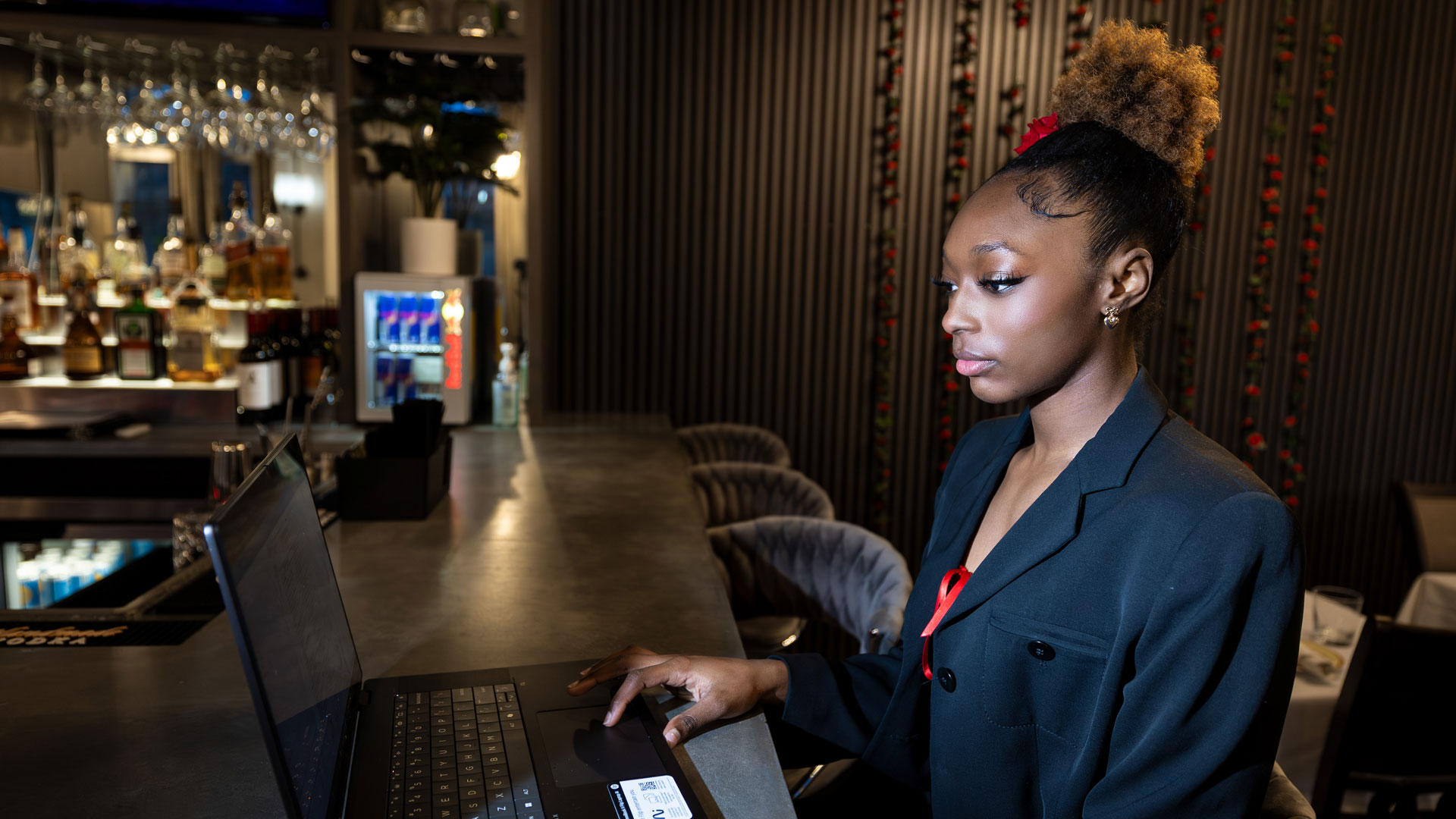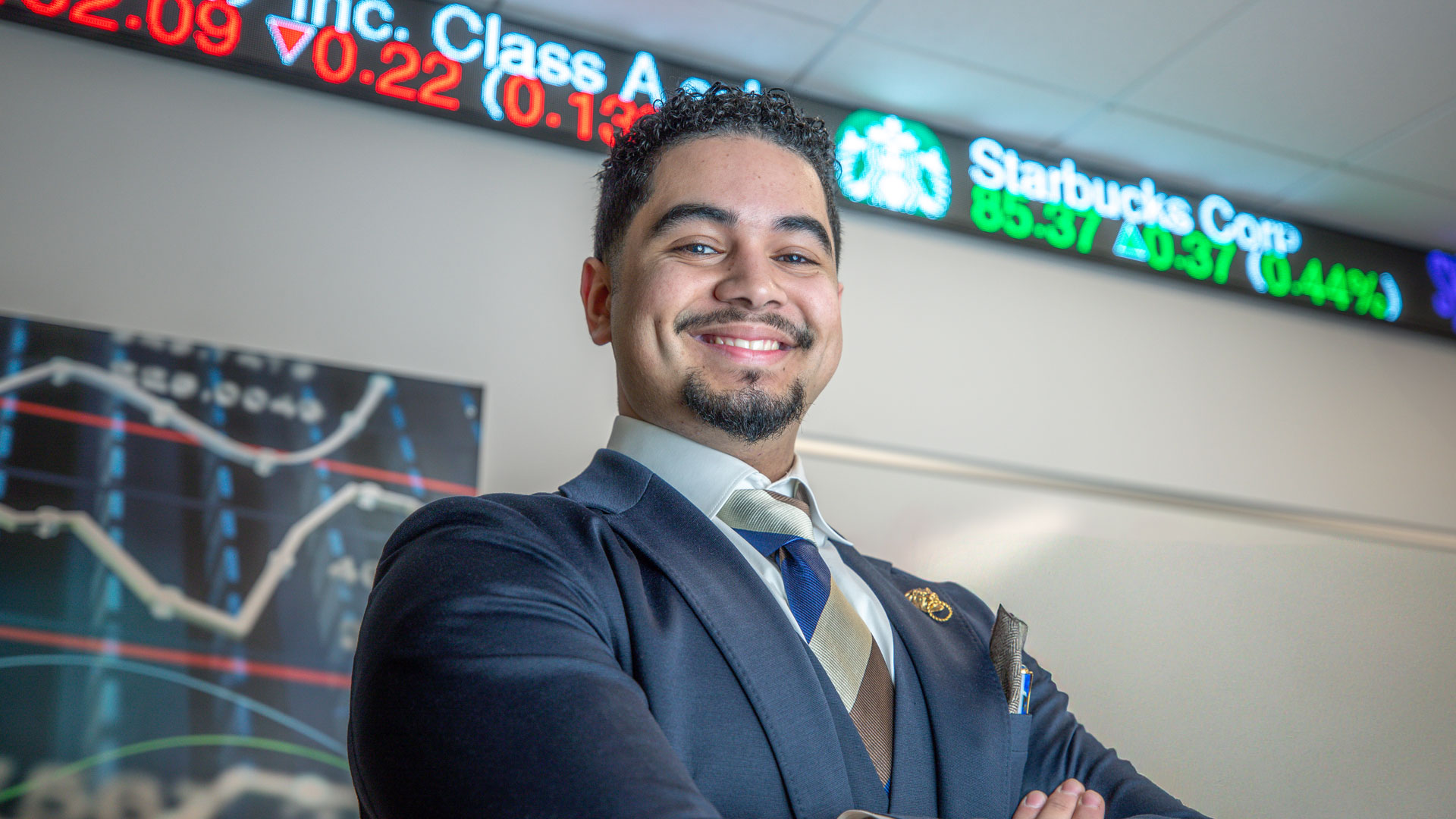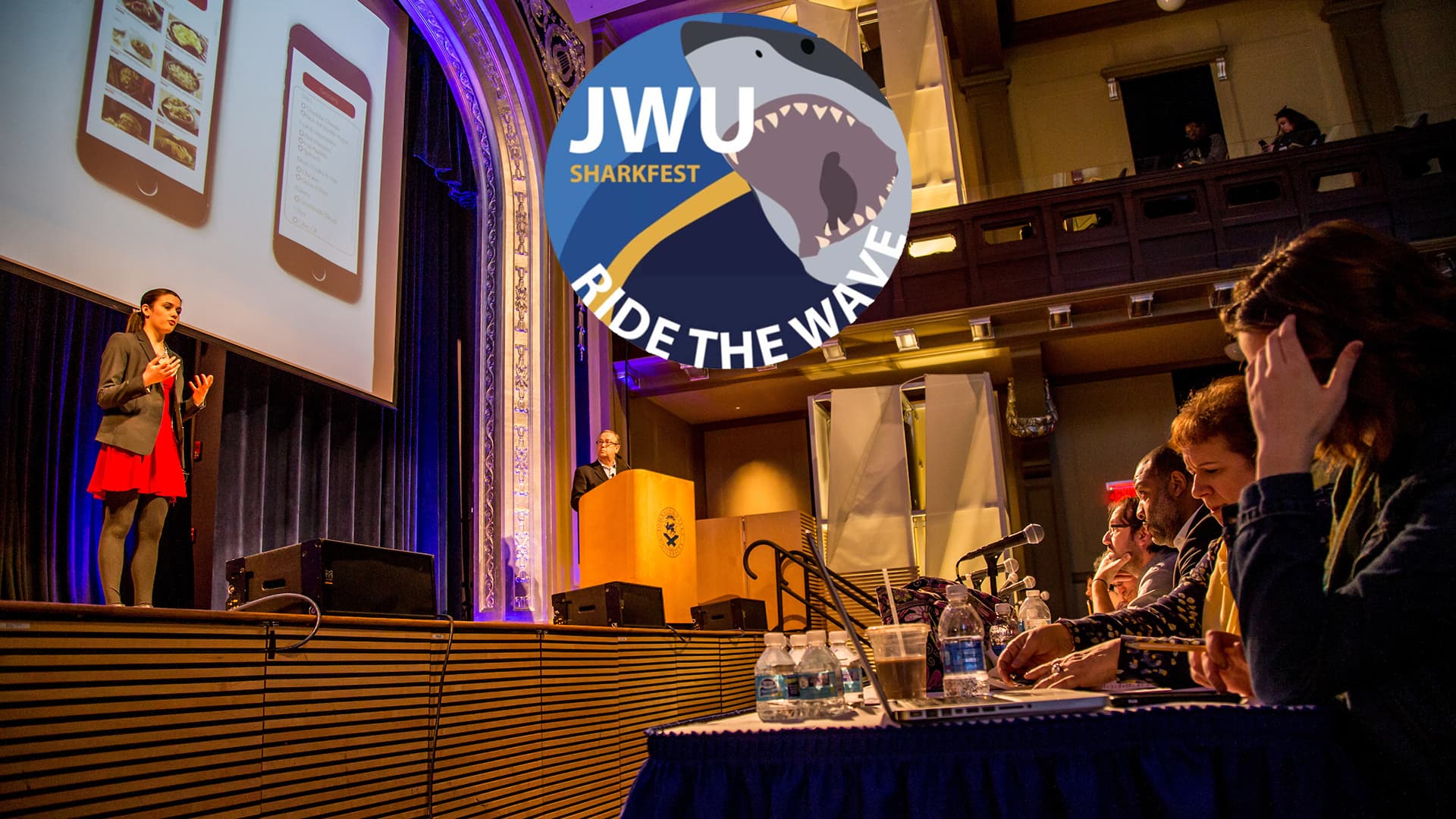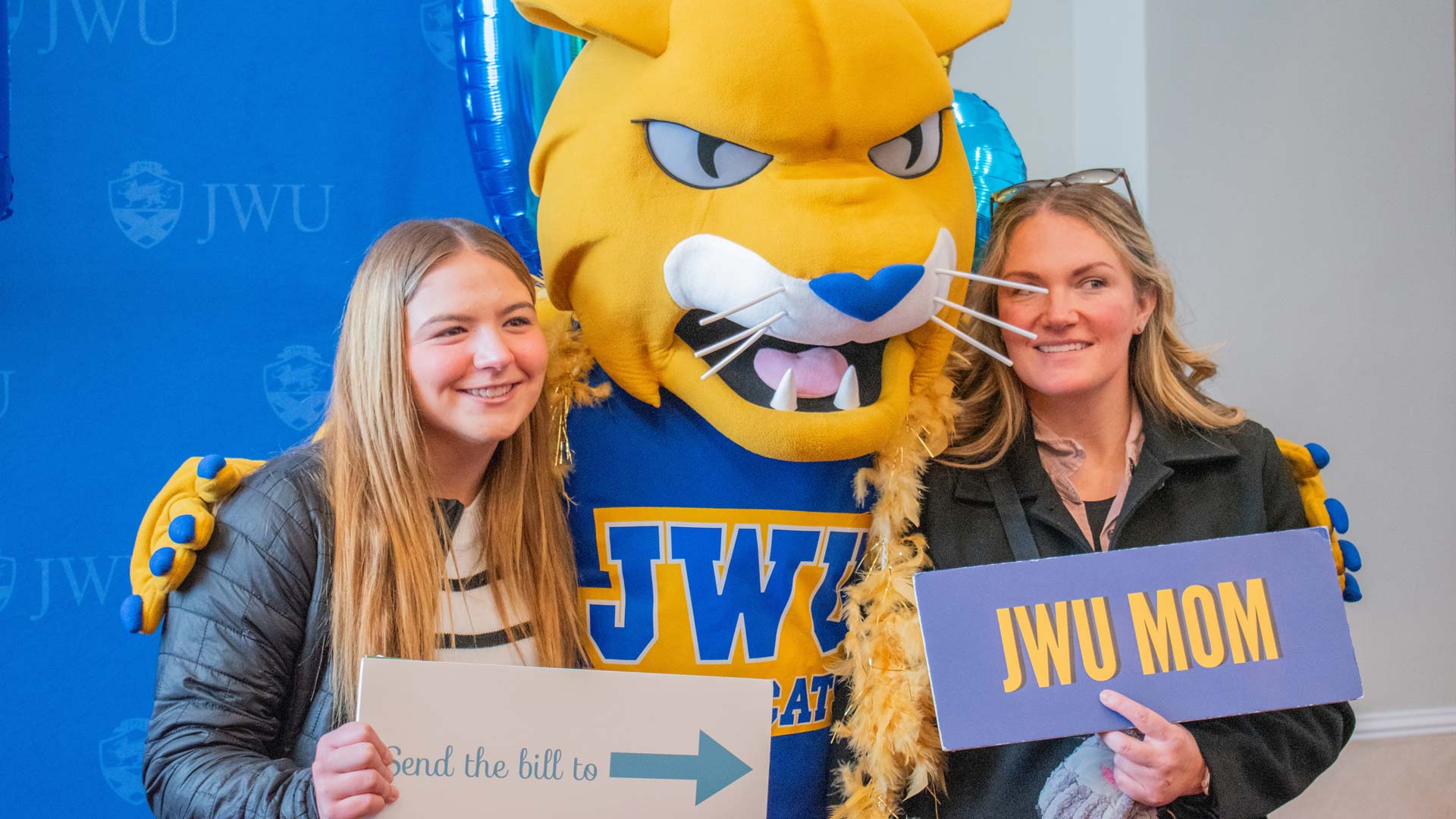Beyond the Curriculum: JWU’s College of Hospitality & Business Reimagines Career-Focused Education
This piece is written by Jennifer Adams Galipeau, Ed.D., dean of the College of Hospitality & Business and associate provost of academic affairs.
In higher education, academic units are often defined by their formal curricula — degree programs, learning outcomes and accreditation standards. But the most dynamic colleges are also living ecosystems, shaped by the people, cultures, relationships and encounters that spark learning beyond the syllabus. At Johnson & Wales University (JWU), our College of Hospitality & Business (COHB) was built to harness both: structured, high-impact instruction and the informal connections that happen when ideas and industries intersect.
Uniting two of JWU’s most powerful academic legacy programs, hospitality leadership and business innovation, COHB creates an environment unlike any other in higher education. It is a deliberate response to a professional landscape that is global, rapidly changing, and driven by experiences as much as outcomes.
The COHB is the university’s largest college with nearly 3,000 students, offering more than a dozen undergraduate degrees ranging from accounting to marketing, and includes the new three-year bachelor’s degree in Hospitality Management — the first in the nation. The College also offers 20 graduate degrees including a Doctor of Business Administration.
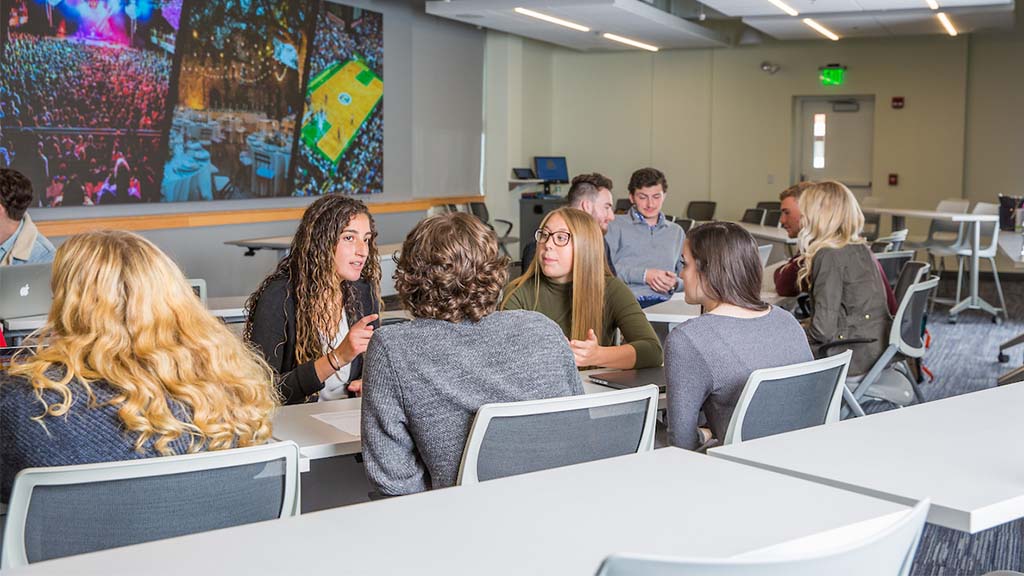
A Pathway, Not Just a Program
Too often, students are asked to “pick a major” with little connection to where it will take them. Johnson & Wales flips that equation: students choose a career pathway first, then shape their education around the skills, experiences and professional network needed to succeed.
Whether the choice is in finance, business, entrepreneurship or hospitality operations and management, each program blends hands-on application with strategic and creative problem-solving. Because hospitality and business are housed under one roof, our graduates leave with a unique mix of technical competencies and human skills — an adaptability that today’s employers not only value but require.
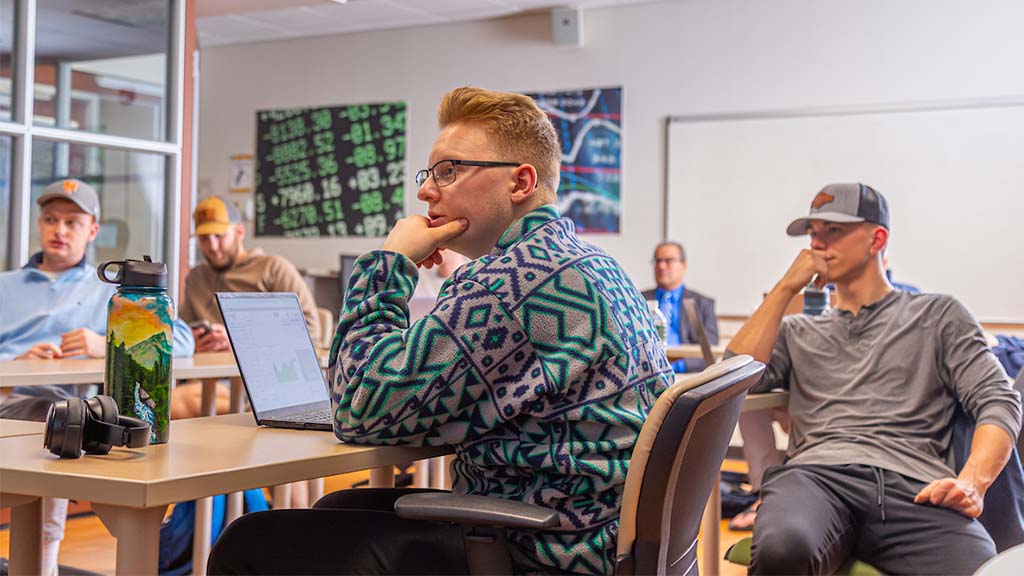
Graduate Education for the Next Economy
At the graduate level, our programs go beyond foundational knowledge to develop advanced leadership for complex, interconnected environments. Students refine their ability to anticipate industry trends, lead transformation and create long-term value. With a curriculum that balances analytical rigor and human-centered thinking, we prepare graduates to be not just job-ready, but future-ready.
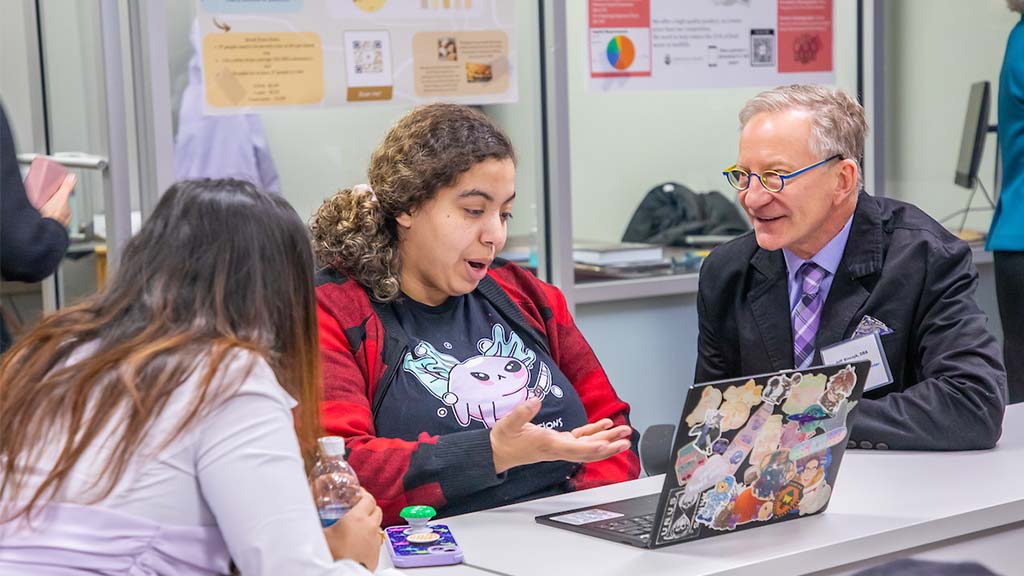
From Classroom to Career, Without the Gap
Our labs and experiential learning environments are not simulations of the “real world” — they are the real world, embedded into campus life:
- Finance & Strategy Lab: Students track markets, analyze sectors and make live investment decisions.
- The eCenter: A space where entrepreneurial ideas are tested, refined and mentored into viable ventures.
- Retail Lab: Immersive retail environments where students complete portfolio-ready projects.
- Bistro 61: A full-service restaurant lab where students lead teams, manage operations and track performance metrics.
- Bigelow Beverage Classroom: Applied learning in beverage operations, from inventory management to brand strategy.
- SEEM Lab: Students gain hands-on experience in venue management, plan and deliver live events, and build real industry connections through lab-based technology.
These are not side projects, they are core to the curriculum. Students graduate not only with a degree, but with a portfolio, a network and a track record of applying theory to practice. Our alumni go on to lead with distinction across a wide range of industries. They launch innovative start-ups and business ventures, serve as C-suite executives in global corporations, and lead multinational hotel, tourism and restaurant brands.
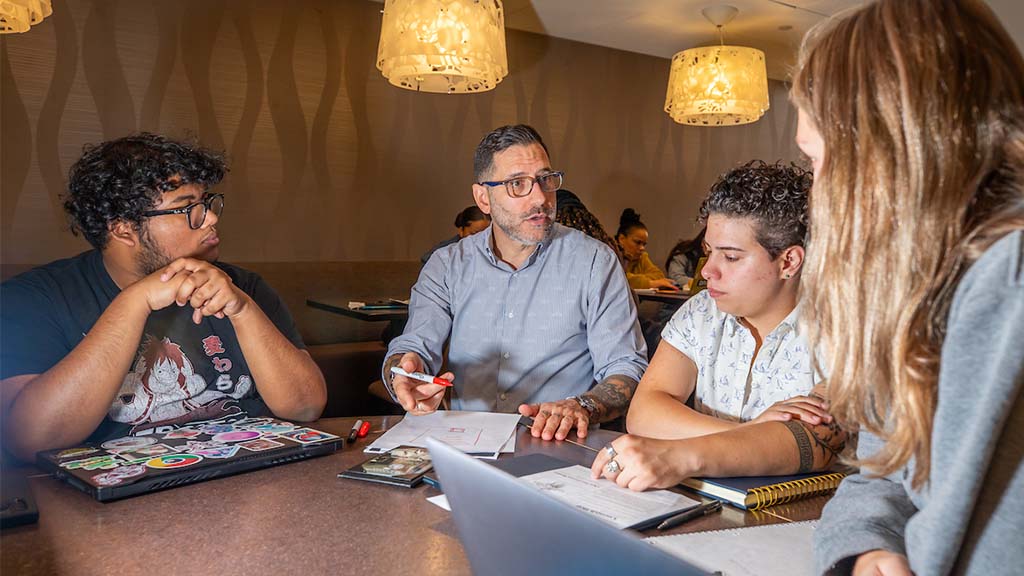
Why It Matters for Higher Education
The future of work demands professionals who can operate at the intersection of disciplines, anticipate change and lead with both data and empathy. JWU’s College of Hospitality & Business is designed to meet that challenge head-on. By merging fields traditionally taught apart, and embedding real-world experience at every stage, we’re redefining what it means to be career-ready.
There is also a demand for more flexible, efficient pathways to careers. COHB’s new three-year bachelor’s degree in Hospitality Management offers the same rigorous curriculum and hands-on experiences as its’ traditional four-year counterpart, but in a format that helps students save time and cost and enter the workforce sooner.
In a time when higher education is under pressure to prove its value, this approach doesn’t just prepare graduates for their first job — it equips them to navigate an entire career in an economy that will keep reinventing itself. That’s the kind of ecosystem worth building.
